Allen Black Raspberry Plant
Description
A reliable favorite for flavor, size, and cold hardiness. The Allen Black Raspberry Plant is a standout variety that delivers large harvests of firm, glossy black fruit with rich, sweet flavor. It’s an ideal pick for home gardeners who want high performance and consistent yields year after year.
This cultivar is a cross between two classic black raspberry varieties—Bristol and Cumberland—and it’s known for combining the best traits of both: exceptional taste, cold tolerance, and strong disease resistance. Allen produces fruit in mid-summer, typically ripening in July, and thrives in USDA Zones 4–8, making it a great option for northern climates.
The berries are juicy and aromatic, perfect for fresh eating, preserves, and baking. Plants are self-pollinating, so only one is needed for fruit production, though multiple plants can boost your harvest.
- Large, glossy black raspberries with superior sweet flavor
- Ripens in July (mid-season)
- Cold-hardy and adaptable; great for Zones 4–8
- Vigorous, productive variety with dependable annual yields
- Disease-resistant and easy to grow with proper pruning
Whether you’re planting a few for the backyard or adding to a larger berry patch, Allen offers a balance of reliability, productivity, and old-fashioned raspberry flavor.
Note: Do not plant Red, Gold or Purple raspberries within 75-100 feet of Black raspberries. Black raspberries may be more susceptible to viral diseases carried by aphids to and from nearby raspberry plants.
After planting, be sure to prune the bare-root canes back to about 2 inches above the ground. (This does not apply to potted raspberry plants.) Do not skip this step! It is a crucial factor in encouraging the roots to send up new growth during the growing season. It is in the nature of raspberry plants to send up new growth as suckers or basal shoots from below the ground. This means the canes that you plant may not be where you find signs of life or new growth. When it’s time to grow, you will see new sprouts emerge from the ground around where you planted the cane, and this growth is coming from the raspberry plant’s root system.
Characteristics
| Bloom Color | Orange, White |
| Fruit Color | Black |
| Fruit Size | Large |
| Hardiness Zone Range | 4 - 8 |
| Pollination | Self-Pollinating |
| Ripens/Harvest | July |
| Shade/Sun | Full Sun |
| Soil Composition | Loamy |
| Soil Moisture | Well Drained |
| Soil pH Level | 6.0 - 6.8 |
| Texture | Firm And Juicy |
| Years to Bear | 1 - 2 |
Zone Compatibility
Pollination
This variety is self pollinating.
Tools & Supplies
Planting & Care
Learn all about how to grow raspberry plants in The Growing Guide. An entire section of our website dedicated to your growing success.
Questions & Answers
This variety does not have a primocane (first-year canes) bearing habit. It bears a summer crop on floricanes (older, second-year canes).
Blackberries are medium to large (9/16 - 3/4"). I find Allen, Bristol and Black-
hawk (if you can find it) are a great three-some.
Thank you for your inquiry. I'm sorry to hear about your tree. Please call Customer Support at 800.325.4180 and we'll be happy to assist you with a one-time replacement or refund if purchased within the last year.
I have had these plants for 2 years, letting them develop in a local patch. Never had any disease issues, here in Northern Maine. I just apply 10-10-10 in spring and some nutrients in summer, and let them develop.
Hello. I agree they are hard to get started! Congratulations on getting a first year crop! Now you need to cut the old first year canes to the ground. They will not bear fruit again. Then you cut the new growth of canes to about 4 to 5 feet tall. Then you trim the side shoots to about 1 foot in length. They will be the ones to bear fruit for this year. If you want more starts and the side shoots have grown long enough to touch the ground, pin them there to start rooting and therefore; starts a new plant. I hope that this has been helpful. Diana Jensen, Idaho Master Gardener
yes very productive plant
Hi, Patty! They asked me to respond to your question regarding black raspberries. I live in Oklahoma, where our summers are hot and winters aren’t as cold as yours. I’m originally from Indiana where the winters are horribly cold and the black raspberries thrived. I bought 2 plants, this will be my second summer, and they have lots of nice buds; I’m looking forward to picking them this summer. I researched lots before I planted. They are along the North side of my house, sheltered from the intense afternoon heat, on a slight slope so the soil isn’t soggy, and shaded in the afternoon. I used compost/manure, mulched them that first winter and have them trellised. I looked up training and pruning black raspberries to get an idea of how to do build a support. Hope you have success!
Yes they do but they are small like raspberry thorns, not like blackberries
Yes as it is not a thornless variety.
We appreciate you reaching out to us. Because weather and soil conditions vary so much from year to year and even within your zone, it's best to think of your planting time as a range of favorable conditions instead of an exact time.
You can plant new plants and trees:
1) when the ground is not frozen.
2) when daytime temperatures are above freezing (32ºF) and below 90ºF.
3) when extreme weather (blizzard, hail, torrential rain, etc.) is not in the forecast. Be sure to keep plants watered if you're transplanting in warm and/or dry weather.
If you have any further questions please don't hesitate to reach back out to us. Have a great day!

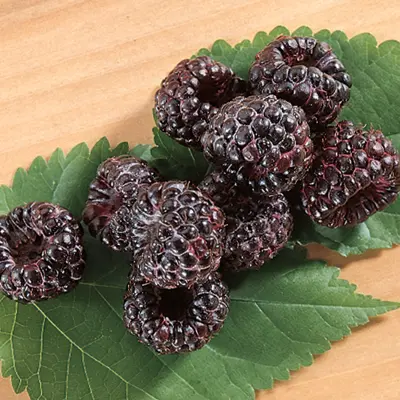
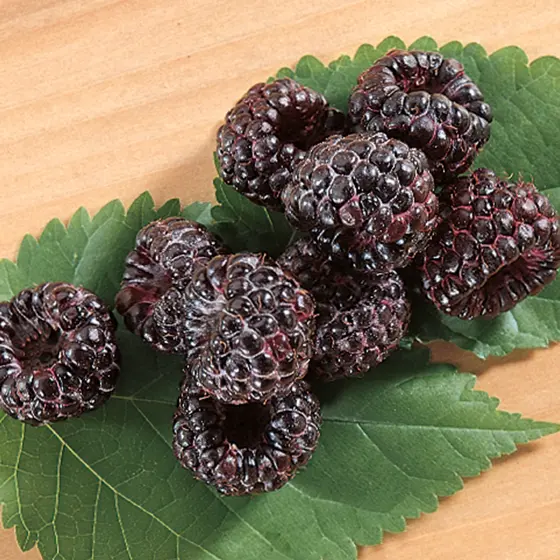
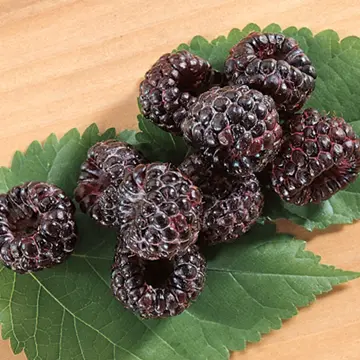
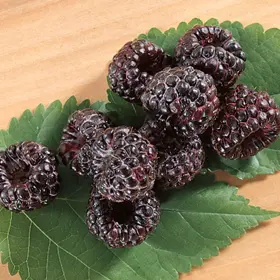
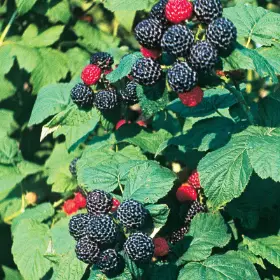
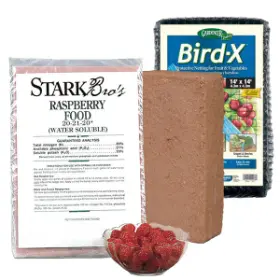
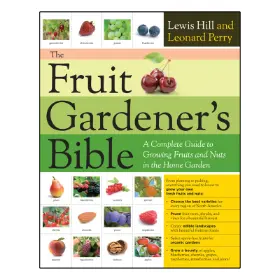
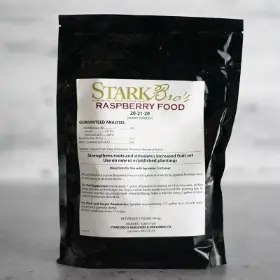
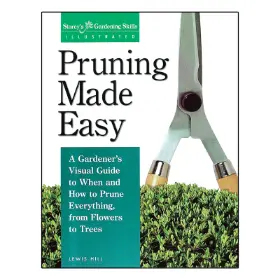

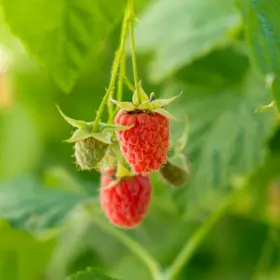
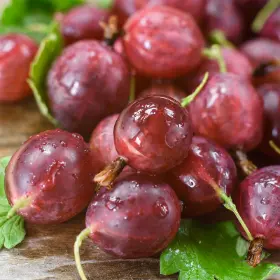
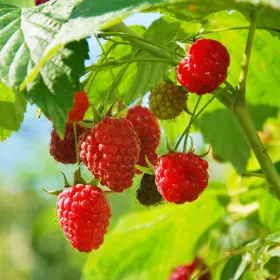
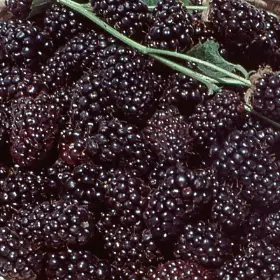
I love black raspberry and these were a good price
Our grand babies love to eat raspberries.
This is a shipment to replace 4 of the blueberry plants from my previous order which died without budding out within 2 months of planting; the other 2 plants appear to be fine. They come in groups of 3 roots.
My friends and I picked things we want to eat. To save us money overall, also to make jams with.